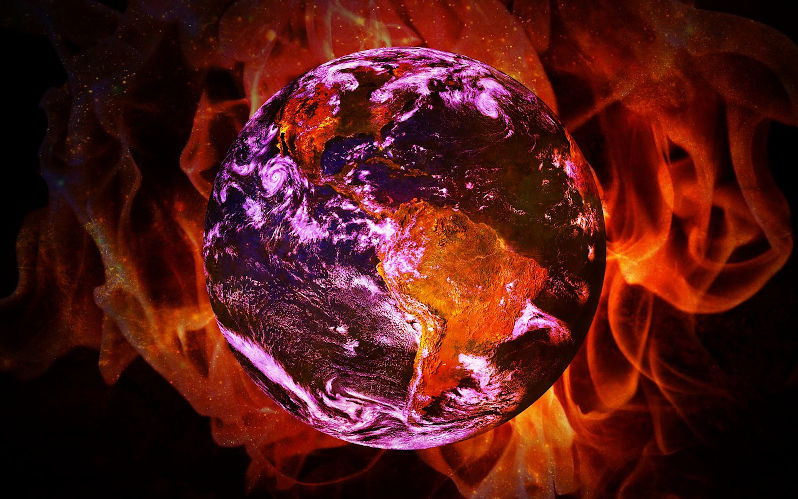Urging renewable transition, UN Chief says humanity set to 'Incinerate our only home'
June 8, 2022
“If we act together, the renewable energy transformation can be the peace project of the 21st century,” said U.N. Secretary-General Antnio Guterres.
The head of the United Nations on Wednesday criticised the “broken” global energy system that’s leading humanity “ever closer to climate catastrophe” and urged world leaders to instead grab onto “the lifeline… right in front of us"a transition to renewable sources.
“We must end fossil fuel pollution and accelerate the renewable energy transition, before we incinerate our only home,” said U.N. Secretary-General Antnio Guterres.
His remarks were delivered in a video address alongside the release of the World Meteorological Organisation’s latest flagship report, the State of the Global Climate 2021. That publication, according to Guterres, represents “a dismal litany of humanity’s failure to tackle climate disruption.” The report notes that four out of seven climate indicators hit record levels last year.
Since greenhouse gas concentrations hit a new global high in 2020, reaching 413.2 parts per million, real-time data from monitoring sites including Mauna Loa in Hawaii confirm the rising trend of CO2, methane, and nitrous oxide continued in 2021. Additionally, 2015 to 2021 were the seven warmest years on record, the report states, while sea-level rise also hit a new record.
Ocean heating continued as well, with the heat content in 2021 marking the highest on record. “It is expected that it will continue to warm in the futurea change which is irreversible on centennial to millennial timescales,” the report warns.
“It is just a matter of time before we see another warmest year on record,” said WMO Secretary-General Prof. Petteri Taalas. “Our climate is changing before our eyes.” “The heat trapped by human-induced greenhouse gases will warm the planet for many generations to come,” Taalas continued. “Sea level rise, ocean heat, and acidification will continue for hundreds of years unless means to remove carbon from the atmosphere are invented.” He added that “some glaciers have reached the point of no return and this will have long-term repercussions in a world in which more than 2 billion people already experience water stress.”
Despite investments made in disaster preparedness thus far, “much more needs to be done,” said Taalas, “as we are seeing with the drought emergency unfolding in the Horn of Africa, the recent deadly flooding in South Africa, and the extreme heat in India and Pakistan.”
To address the clear planetary crisisand stressing that “we don’t have a moment to lose” Guterres said that dependence on fossil fuels must end. He detailed five key actions to speed up a global transition to renewables.
First, renewable energy technology must be made “a global public good,” which entails removing roadblocks such as intellectual property rights, he said. Guterres also called for ensuring global access to renewable energy components and raw materials.
An additional step states must take is to “level the playing field” for renewables by eliminating systems that favour fossil fuels and instead fast-tracking approvals for green projects like solar and wind.
As a fourth step, the U.N. chief said that governments must eliminate fossil fuel subsidies.
Lastly, Guterres called for a tripling of private and public investments in renewable energy to reach $4 trillion annually. Financial institutions have a role to play, he said, directing them to “fully align their entire lending portfolios with the Paris Agreement, by 2024 at the latest,” and “to end all high-emissions high pollution finance.”
“If we act together,” said Guterres, “the renewable energy transformation can be the peace project of the 21st century.”

